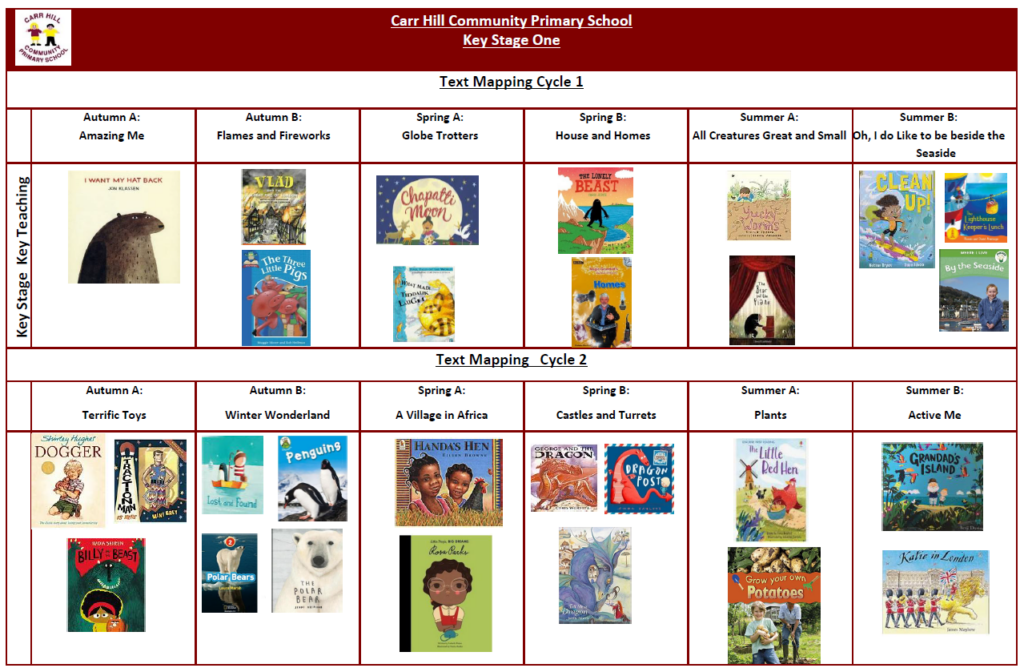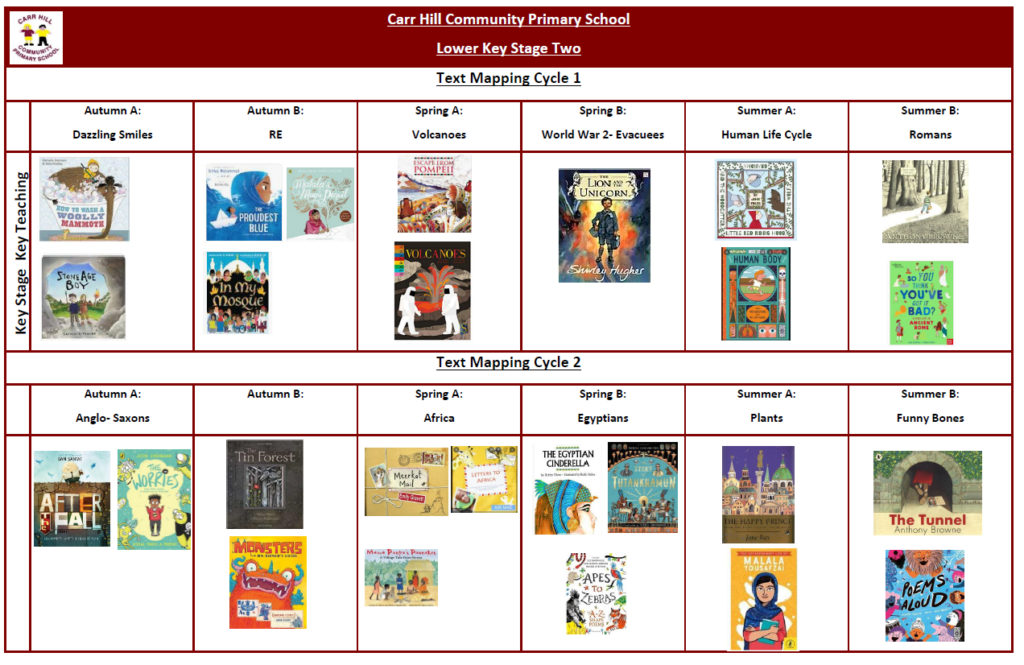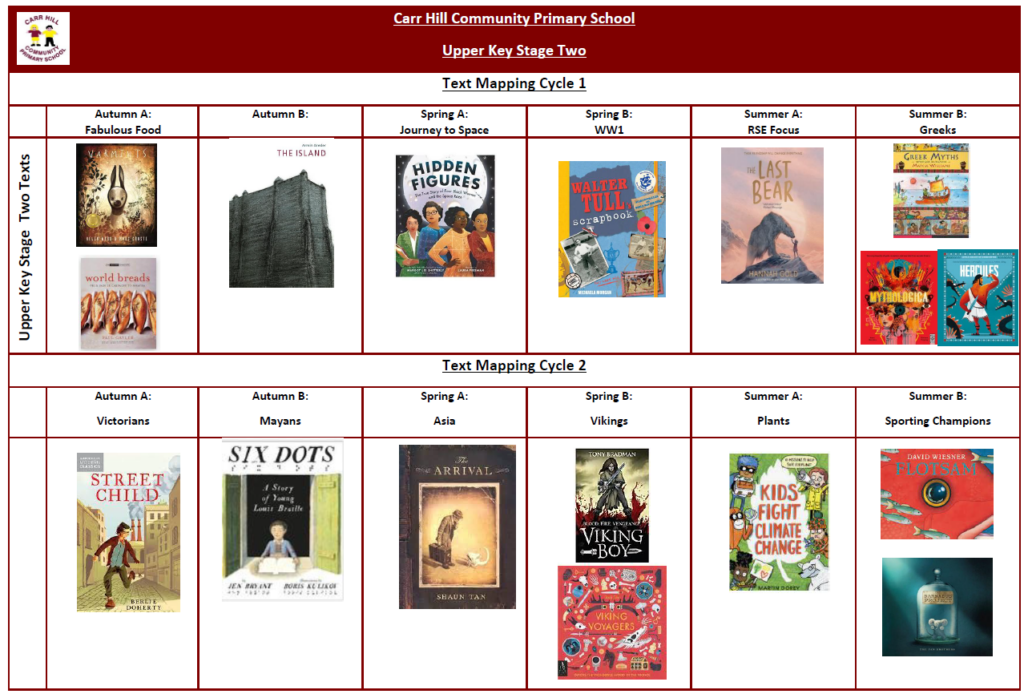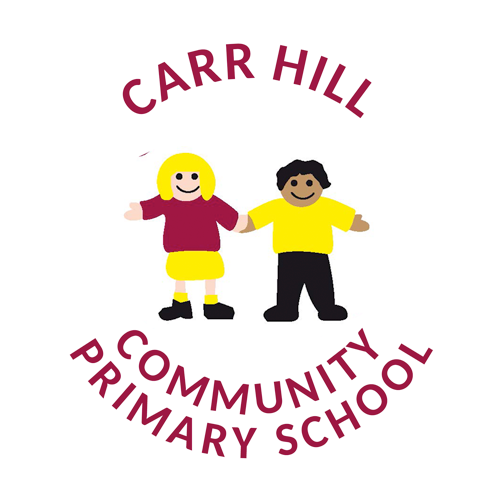
Mrs Chandler leads the teaching of English in school.
Our Intent for English
Our Literacy curriculum is designed to meet the content requirements of the DFE’s ‘National Curriculum in England: English Programmes of Study’ (2014) and the language and literacy sections of the ‘Statutory Framework for the Early Years Foundation Stage’ (2014).
Our curriculum aims to develop pupils’ competence in reading, writing, speaking, and listening; this is to ensure that our pupils can become competent users of language. The development of these literacy skills will ensure that pupils can access the whole curriculum effectively and achieve their potential.
At Carr Hill Community Primary School we believe that a quality English curriculum should develop children’s love of reading, writing and discussion. One of our priorities is helping children read and develop their all-important comprehension skills. We recognise the importance of nurturing a culture where children take pride in their writing, can write clearly and accurately and adapt their language and style for a range of contexts. We want to inspire children to be confident in the art of speaking and listening and who can use discussion to communicate and further their learning.
We believe that children need to develop a secure knowledgebase in Literacy, which follows a clear pathway of progression as they advance through the primary curriculum.


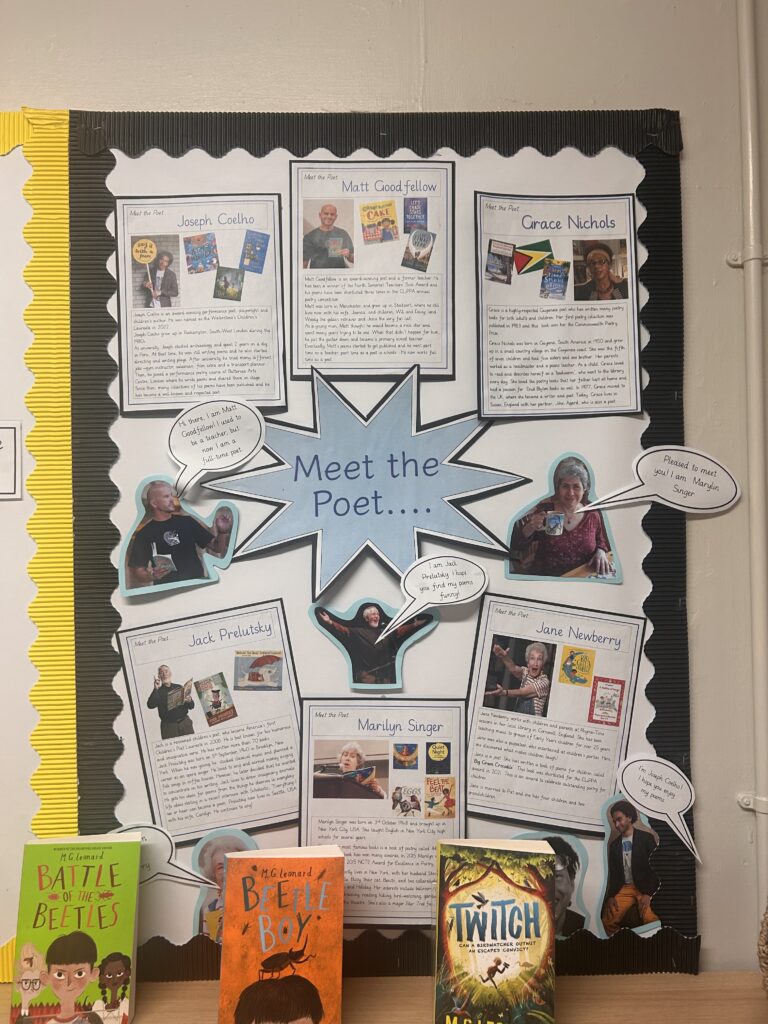
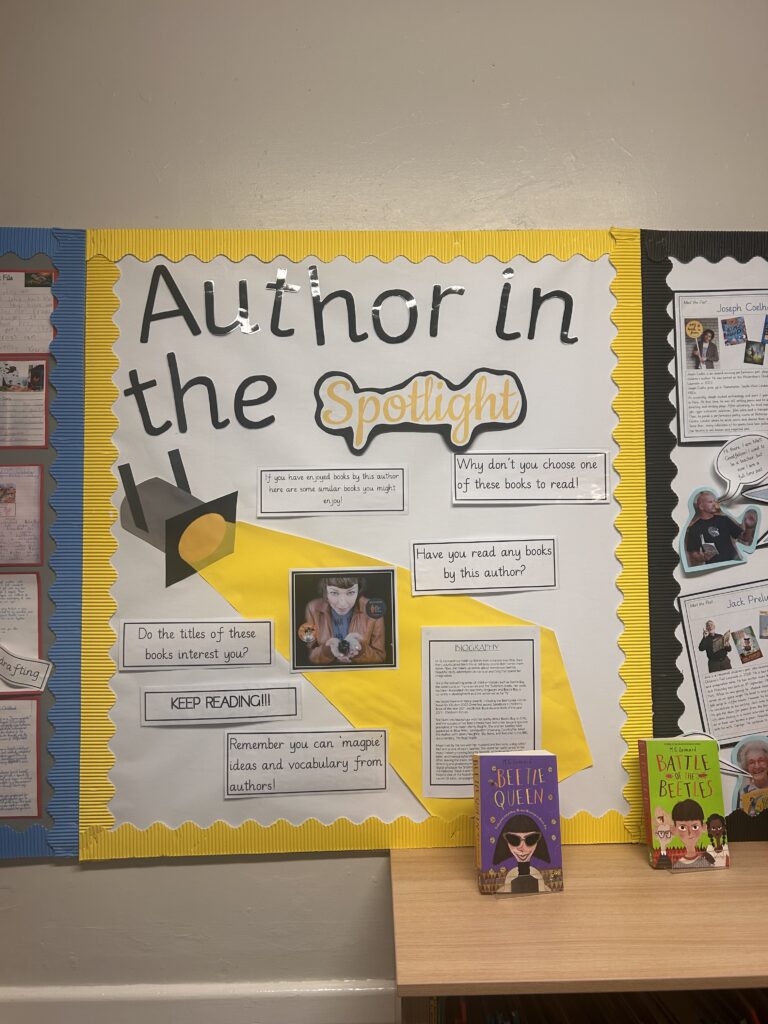
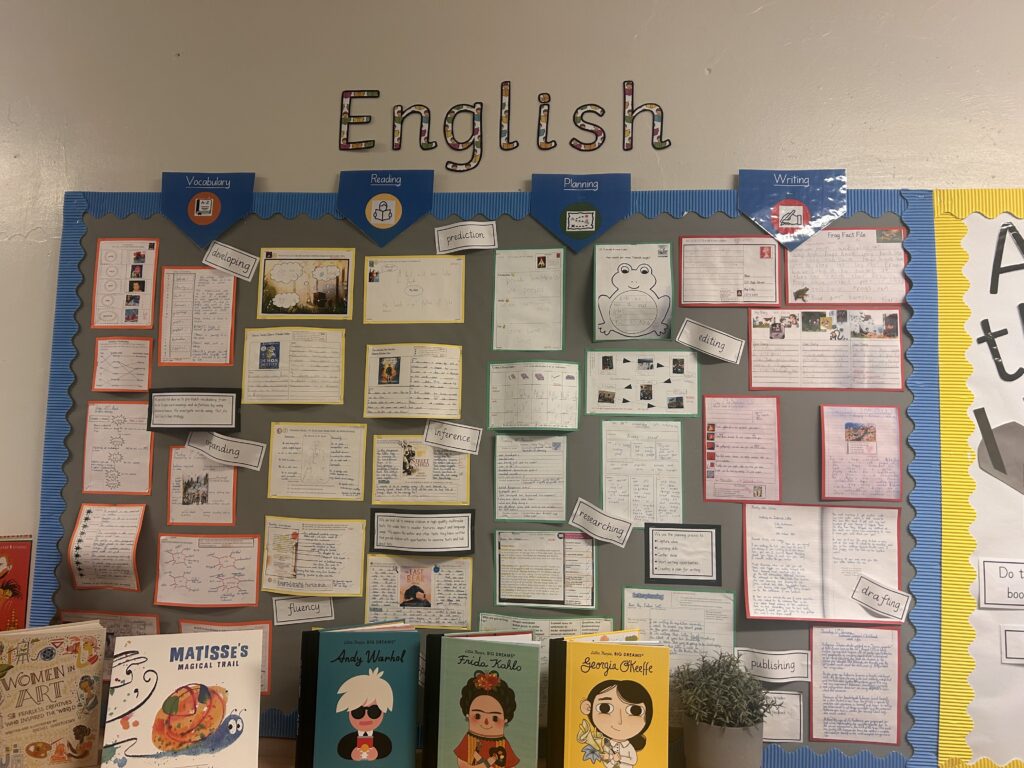
The Implementation of English
These aims are embedded across our literacy lessons and the wider curriculum. We have a rigorous and well organised English curriculum and framework, that provides many purposeful opportunities for reading, writing and discussion. We use a wide variety of quality texts and resources to motivate and inspire our children. Teachers also ensure that cross curricular links with concurrent topic work are woven into the programme of study.
The national curriculum for English aims to ensure that all pupils:
- read easily, fluently and with good understanding
- develop the habit of reading widely and often, for both pleasure and information
- acquire a wide vocabulary, an understanding of grammar and knowledge of linguistic conventions for reading, writing and spoken language
- appreciate our rich and varied literary heritage
- write clearly, accurately and coherently, adapting their language and style in and for a range of contexts, purposes and audiences
- use discussion in order to learn; they should be able to elaborate and explain clearly their understanding and ideas
- are competent in the arts of speaking and listening, making formal presentations, demonstrating to others and participating in debate.
Writing at Carr Hill Community Primary School is taught through daily English lessons and the use of a quality texts. Daily English sessions include vocabulary, grammar and punctuation development. In order to help us to develop confident, enthusiastic writers who can express themselves in a variety of different styles and across a variety of contexts, our teaching of writing is often cross circular and linked to our class topics. This provides our children with regular opportunities to write for a range of purposes and audiences. Writing tasks are specific and meaningful, and often meet a purpose to engage children and to illustrate how their writing skills can be applied to real life contexts.
Reading at our school is delivered through reading practise sessions in Reception and Key Stage One. Children have three reading practise sessions each week consisting of a decoding, prosody, and comprehension lessons. Within Key Stage 2 children will have a range of reading opportunities including group reading practice, whole class reading and we use ‘Reading Plus’ to help improve fluency, comprehension, vocabulary, stamina, and motivation within reading This can also be accessed from home. Through weekly discussion and reflection with peers and staff, children develop the skills and strategies that they need to become competent and fluent readers, as well as learning to recognise the language features of different text types. In conjunction with our progressive approach to writing, we ensure that reading is at the centre of our learning by using quality texts to deliver English lessons.
Reinforced by the provision of weekly home reading books, careful selection of texts has the dual purpose of seeding the desire to read for enjoyment. By introducing our pupils to engaging, exciting and stimulating texts we develop the habit of reading widely and often, for both pleasure and information.
Each class also have discrete comprehension, handwriting and basic skills sessions within their weekly timetables. Where appropriate these sessions are linked to the texts the children are currently exploring.
The Impact of English
The impact on our children is evidenced by their progress, sustained learning and transferrable skills. Throughout reading and writing sessions, children learn to identify the key language features within each writing genre and the basic skills in writing are continually reinforced. We aspire that all pupils will make good progress from their own personal starting points. By the end of Year Six they will be able to read and write fluently, clearly and accurately and adapt their language and style in and for a range of contexts, purposes and audiences.
With the implementation of the writing journey being well established and taught thoroughly in both key stages, children are becoming more confident writers and by the time they are in upper Key Stage 2, most genres of writing are familiar to them and the teaching can focus on creativity, writer’s craft, sustained writing and manipulation of grammar and punctuation skills.
As all aspects of English are an integral part of the curriculum, cross curricular writing standards have also improved and skills taught in the English lesson are transferred into other subjects; this shows consolidation of skills and a deeper understanding of how and when to use specific grammar, punctuation and grammar objectives. We hope that as children move on from us to further their education and learning that their creativity, passion for English and high aspirations travel with them and continue to grow and develop as they do. As a result, we have a community of increasingly enthusiastic readers and writers who enjoy showcasing their developing literacy knowledge and skills. They are confident to take risks in their reading and writing, and love to discuss and share their ideas.
Our English Curriculum Overview
Purpose of study
English has a pre-eminent place in education and in society. A high-quality education in English will teach pupils to speak and write fluently so that they can communicate their ideas and emotions to others and through their reading and listening, others can communicate with them. Through reading in particular, pupils have a chance to develop culturally, emotionally, intellectually, socially and spiritually. Literature, especially, plays a key role in such development. Reading also enables pupils both to acquire knowledge and to build on what they already know. All the skills of language are essential to participating fully as a member of society; pupils, therefore, who do not learn to speak, read and write fluently and confidently are effectively disenfranchised.
Aims
The overarching aim for English in the national curriculum is to promote high standards of language and literacy by equipping pupils with a strong command of the spoken and written word, and to develop their love of literature through widespread reading for enjoyment. The national curriculum for English aims to ensure that all pupils:
- read easily, fluently and with good understanding
- develop the habit of reading widely and often, for both pleasure and information
- acquire a wide vocabulary, an understanding of grammar and knowledge of linguistic conventions for reading, writing and spoken language
- appreciate our rich and varied literary heritage
- write clearly, accurately and coherently, adapting their language and style in and for a range of contexts, purposes and audiences
- use discussion in order to learn; they should be able to elaborate and explain clearly their understanding and ideas
- are competent in the arts of speaking and listening, making formal presentations, demonstrating to others and participating in debate.
Spoken language
The national curriculum for English reflects the importance of spoken language in pupils’ development across the whole curriculum – cognitively, socially and linguistically. Spoken language underpins the development of reading and writing. The quality and variety of language that pupils hear and speak are vital for developing their vocabulary and grammar and their understanding for reading and writing. Teachers should therefore ensure the continual development of pupils’ confidence and competence in spoken language and listening skills. Pupils should develop a capacity to explain their understanding of books and other reading, and to prepare their ideas before they write. They must be assisted in making their thinking clear to themselves as well as to others and teachers should ensure that pupils build secure foundations by using discussion to probe and remedy their misconceptions. Pupils should also be taught to understand and use the conventions for discussion and debate.
All pupils should be enabled to participate in and gain knowledge, skills and understanding associated with the artistic practice of drama. Pupils should be able to adopt, create and sustain a range of roles, responding appropriately to others in role. They should have opportunities to improvise, devise and script drama for one another and a range of audiences, as well as to rehearse, refine, share and respond thoughtfully to drama and theatre performances.
Statutory requirements which underpin all aspects of spoken language across the six years of primary education form part of the national curriculum. These are reflected and contextualised within the reading and writing domains which follow.
Reading
The programmes of study for reading at key stages 1 and 2 consist of two dimensions:
- word reading
- comprehension (both listening and reading).
It is essential that teaching focuses on developing pupils’ competence in both dimensions; different kinds of teaching are needed for each.
Skilled word reading involves both the speedy working out of the pronunciation of unfamiliar printed words (decoding) and the speedy recognition of familiar printed words. Underpinning both is the understanding that the letters on the page represent the sounds in spoken words. This is why phonics should be emphasised in the early teaching of reading to beginners (i.e. unskilled readers) when they start school.
Good comprehension draws from linguistic knowledge (in particular of vocabulary and grammar) and on knowledge of the world. Comprehension skills develop through pupils’ experience of high-quality discussion with the teacher, as well as from reading and discussing a range of stories, poems and non-fiction. All pupils must be encouraged to read widely across both fiction and non-fiction to develop their knowledge of themselves and the world in which they live, to establish an appreciation and love of reading, and to gain knowledge across the curriculum. Reading widely and often increases pupils’ vocabulary because they encounter words they would rarely hear or use in everyday speech. Reading also feeds pupils’ imagination and opens up a treasure-house of wonder and joy for curious young minds.
It is essential that, by the end of their primary education, all pupils are able to read fluently, and with confidence, in any subject in their forthcoming secondary education.
Writing
The programmes of study for writing at key stages 1 and 2 are constructed similarly to those for reading:
- transcription (spelling and handwriting)
- composition (articulating ideas and structuring them in speech and writing).
It is essential that teaching develops pupils’ competence in these two dimensions. In addition, pupils should be taught how to plan, revise and evaluate their writing. These aspects of writing have been incorporated into the programmes of study for composition.
Writing down ideas fluently depends on effective transcription: that is, on spelling quickly and accurately through knowing the relationship between sounds and letters (phonics) and understanding the morphology (word structure) and orthography (spelling structure) of words. Effective composition involves forming, articulating and communicating ideas, and then organising them coherently for a reader. This requires clarity, awareness of the audience, purpose and context, and an increasingly wide knowledge of vocabulary and grammar. Writing also depends on fluent, legible and, eventually, speedy handwriting.
Spelling, vocabulary, grammar, punctuation and glossary
The two statutory appendices – on spelling and on vocabulary, grammar and punctuation – give an overview of the specific features that should be included in teaching the programmes of study.
Opportunities for teachers to enhance pupils’ vocabulary arise naturally from their reading and writing. As vocabulary increases, teachers should show pupils how to understand the relationships between words, how to understand nuances in meaning, and how to develop their understanding of, and ability to use, figurative language. They should also teach pupils how to work out and clarify the meanings of unknown words and words with more than one meaning. References to developing pupils’ vocabulary are also included within the appendices.
Pupils should be taught to control their speaking and writing consciously and to use Standard English. They should be taught to use the elements of spelling, grammar, punctuation and ‘language about language’ listed. This is not intended to constrain or restrict teachers’ creativity, but simply to provide the structure on which they can construct exciting lessons. A non-statutory Glossary is provided for teachers.
Throughout the programmes of study, teachers should teach pupils the vocabulary they need to discuss their reading, writing and spoken language. It is important that pupils learn the correct grammatical terms in English and that these terms are integrated within teaching.
Attainment Targets
By the end of each key stage, pupils are expected to know, apply and understand the matters, skills and processes specified in the relevant programme of study. Schools are not required by law to teach the example content in [square brackets] or the content indicated as being ‘non-statutory’.
DfE PRIMARY_National_Curriculum_-_English
English Curriculum
Teachers will be using the documents below to ensure that all children have access to a comprehensive and age appropriate English curriculum.
The following documents support the English curriculum that we have mapped out for our pupils. The documents are to support the long, medium and short term planning processes to ensure both full coverage and progression in English.
Planning
- CHPS NURSERY English Mapping 1.pdf pdf192.9 KbMar 15th, 2023
- CHPS REC English Mapping .pdf pdf217.1 KbJan 24th, 2023
- CHPS Y1 English Mapping Cycle 1 2026.pdf pdf265.5 KbJan 7th, 2026
- CHPS Y1 English Mapping Cycle 2 2026.pdf pdf265.7 KbJan 7th, 2026
- CHPS Y2 English Mapping Cycle 1 2026.pdf pdf255.5 KbJan 7th, 2026
- CHPS Y2 English Mapping Cycle 2 2026.pdf pdf259.7 KbJan 7th, 2026
- CHPS Y3 English mapping Cycle 1 2026.pdf pdf256.6 KbJan 7th, 2026
- CHPS Y3 English mapping Cycle 2 2026.pdf pdf264.6 KbJan 7th, 2026
- CHPS Y4 English mapping Cycle 1 2026.pdf pdf255.8 KbJan 7th, 2026
- CHPS Y4 English mapping Cycle 2 2026.pdf pdf264.5 KbJan 7th, 2026
- CHPS Y5 English Mapping 2026.pdf pdf221.3 KbJan 7th, 2026
- CHPS Y5 English Mapping Cycle 1 2026.pdf pdf221.3 KbJan 7th, 2026
- CHPS Y5 English Mapping Cycle 2 2026.pdf pdf267.9 KbJan 7th, 2026
- CHPS Y6 English Mapping Cycle 1 2026.pdf pdf218.2 KbJan 7th, 2026
- CHPS Y6 English Mapping Cycle 2 2026.pdf pdf277.6 KbJan 7th, 2026
Writing
Reading
Reading Progression Document
Spelling
Reception and Key Stage 1
Year 2
Key Stage 2
Poetry
Poetry Overview

Poetry Progression
Poetry Plans
Handwriting

We use the Letter Join Handwriting Scheme as a whole school approach to handwriting. Letter-join is a whole school handwriting scheme offering a combination of traditional and digital resources and it is used from Reception to Year Six

Book Mapping


